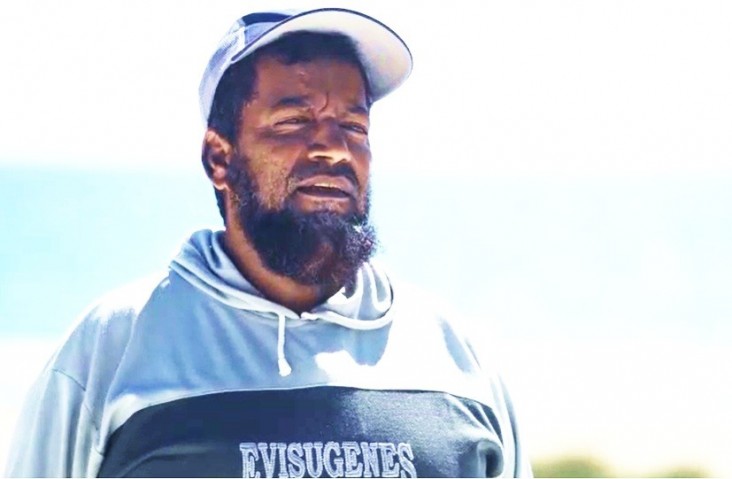Speeches Shim

“Before joining the USAID YESS training workshop we had lost our opportunity to work with fish processors, as we didn’t have the right skills and tools to catch and conserve fish products with the high quality they were looking for. Now, we are able to resume our work with Yemeni fish processors and provide high-quality fish that meets international standards.”
-- Mohammed Al-Hindi, Fisherman
The calm, aqua blue waters of the Gulf of Aden belie the ravages of five years of war that have devastated Yemen’s fishing industry. Although the ocean is rich with highly-prized catches — tuna, lobster, grouper, and more — the fighting has destroyed boats and fisheries infrastructure, bringing many fishing communities to their knees.
Fishing was once the most productive sector in Yemen’s economy, contributing 15 percent of gross domestic product (GDP). Still today, it holds the promise of being a major source of foreign exchange earnings and fiscal revenues. Moreover, for coastal Yemenis, the fisheries sector remains the main form of livelihood, and a primary source of hope for lifting people out of poverty and food insecurity. With the war, however, poor handling and preservation practices have depleted the market and nutritional value of Yemen’s fishing stocks. In response, the USAID Yemen Economic Stabilization and Success (YESS) project has delivered targeted training and technical assistance to fishermen, and all along the value chain, to revitalize the quality of fish catches and maximize returns.
Maintaining the quality of fish starts at the capture stage. As soon as fish is caught, certain on-board handling procedures help ensure top quality and prices, such as draining and gutting the fish to alleviate bacterial buildup and placing it on ice to avoid spoilage. Applying careful hygiene and cold storage measures throughout the process can increase catch prices by two to four times compared to fish that are not well handled.
Convincing fishermen to install coolers on their small traditional boats was not easy at first, however, as it meant competing for space with a larger load of fish. The USAID YESS team had to demonstrate that big wins could be gained by emphasizing quality over quantity in their catches. They also had to back those assurances with strong guarantees. Reaching across the value chain, the team established sales agreements that capitalized on mutually beneficial incentives between fishermen and fish processors. For the fishermen, the agreements now ensure secure sales for their catches and higher prices than those they can fetch on the local market, as long as their fish meet the quality standards. For the buyers, the benefit comes in the form of a reliable supply of high quality product.
Cementing the agreements on paper was critical and served as a first step in building a sense of trust and collaboration between the fishermen and the processors. Initially, the USAID YESS team had to find ways to bridge longstanding divides between the fishermen, who saw processors as exploitative, and the processors, who complained of poor quality product from the fishermen. The team engaged the participation of local fishing associations, which played an important intermediary role in the negotiations with the processors. The associations helped defend the interests of the fishermen, but also selected those who could qualify as suppliers to the processors following USAID training on proper handling techniques to ensure they were meeting their part of the quality control bargain. The processors agreed to share the costs of coolers for the fishing boats with the YESS project, and to supply the ice, but they also maintained the right to refuse any fish that did not make the grade.
The emphasis on quality has not stopped with the fishermen. USAID also has provided training on quality systems to the fish processing companies, transforming their controls, management, and ability to meet tough international standards.
“Following the YESS training and support, our company was able to obtain international quality and food safety certification,” says Radhi Al-Habashi, Deputy General Manager of the Burum Seafood Company, a leading fish processing factory in Mukalla.
When international trade reopens, this will give the company a great competitive leg up for reaching lucrative foreign markets. Mr. Al-Habashi anticipates that the improved quality of the catches they receive from fishermen could lead to a 10 to 20 percent increase in sales and the hiring of 26 additional workers.
Even within the current context of Yemen’s struggles with civil war and the COVID-19 pandemic, enterprise-driven development is central to helping the country reposition itself for a more resilient future. USAID’s focus on quality improvement within the fisheries sector is leading to improved management practices and results. It is an investment not only in strengthening enterprise competitiveness in the short term, but also for pivoting the country towards longer-term self-reliance in a post-pandemic world.
USAID’s Yemen Economic Stabilization and Success (YESS) activity supports self-reliance and resilience by facilitating trade, increasing employment, supporting sustainable livelihoods, and stabilizing crucial macroeconomic policy issues. YESS is part of the USAID Middle East Economic Growth Best Practices Project (MEG), which provides knowledge and tools to support economic growth and reform across the Middle East and North Africa.

Comment
Make a general inquiry or suggest an improvement.